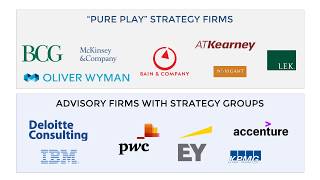
There are many things to consider, regardless of whether you plan to become an IT specialist in Texas. Listed below are some of the legal considerations for starting a consulting business in Texas. Here are some of the tax and insurance implications associated with running a Texas consultancy business. Hopefully, this information will help you decide if a career in consulting is for you. Find out how much it costs for an IT consultant to be hired in Texas.
Legal considerations in Texas for starting a consultancy business
A number of legal steps are required before you can begin working in Texas if you plan to start an IT consulting business. Generally, you should register your business with the IRS and obtain an employer identification number. Depending on how your business operates, you may not require an employer identification number. This is especially true if you consult only or with a few partners. If you intend to offer services to clients, you will also need a professional license. Lastly, you may need to obtain permits, licenses, and other business requirements. You can find the Texas Small Business Administration's list with requirements for starting a consulting firm in Texas.

Texas trademarks, business filings may involve small fees. This complete list includes all fees. It is a good idea for you to have a list of these fees when you first start your career. You must also comply with all legal requirements, including federal mandates and Equal Employment laws. If you are setting up a business, it is worth consulting a tax professional.
Tax consultant texas
Your Texas-based IT consultants have a range of legal obligations. Your firm must not only comply with federal tax regulations but also have adequate financial records and professional liability insurance. It is important that your consulting firm complies with the state's tax laws. There are many resources that can help you make an informed decision about whether your business should become a Texas corporation. These are some suggestions to keep in mind.
Texas IT consultant fees
It is possible to use the average IT support cost per user as a guide for budgeting, making sure that your money is being used wisely, and deciding how much investment in IT you should make. Here are some estimates for the cost of IT support per user in Dallas and Fort Worth, Texas, as well as costs for IT managed service provider services. These services should be understood clearly.
It consultant texas - Insurance
It Consultant Texas Insurance can be purchased for many reasons. Although you can provide outstanding services for your clients you also need to protect your assets. Laptops and other items are popular targets for thieves and criminals. Clients don’t want to take unnecessary risks. Therefore, they may ask for proof of insurance. Consulting insurance is invaluable for both the company as well as its employees.

You can choose from several types of business insurance to protect your IT consulting firm. This first type of insurance covers your business's property and liabilities. Cyber insurance is beneficial as it protects data and other electronic dangers. Workers' comp is important as it covers employees who are injured. All the coverages available to It consultant Texas include the above-mentioned types. An agent can help you choose the right coverage for your consulting company. By using an independent agent, you will be able to get quotes from several companies and choose the right one for your needs.
FAQ
What can I expect of my consultant?
When you choose your consultant, they should respond within a few working days. They will usually ask for information about your company, including its mission, goals, products, services, budget, etc. After that, they will send you a proposal detailing the scope of work, expected time frame, fees and deliverables.
If everything goes as planned, then both parties will agree to a written contractual agreement. The type of relationship between the parties (e.g., employee-employer, independent contractor-employer) will affect the terms of any contract.
If everything goes as planned, the consultant may begin to work immediately. He/she will have immediate access to your internal documents, resources, and you'll be able to access his/her skillset and knowledge.
You shouldn't assume, however, that every consultant is an expert in all areas. To become an expert in any field you consult, it takes practice and effort. Do not expect your consultant to be an expert in every aspect of your business.
What qualifications do you require to become a Consultant?
It doesn't suffice to hold an MBA. You also need to be able and willing to work as a business advisor. You should have at least two years of experience in consulting and/or training for a major company.
You will need to have worked closely alongside senior management teams in order to develop strategy projects. This requires you to feel confident presenting ideas to clients, and getting buy-in.
You will also need to pass a professional qualification test such as the Chartered Management Institute Certified Management Consultant certification (CMC).
What skills are necessary for consulting?
An effective consultant must have strong interpersonal skills as well as analytical skills. This is important because you are working on projects where you may not know exactly what you are doing. You need to be able to manage people quickly and solve problems efficiently.
A strong communication skill is also necessary. Most clients expect a reply within 24 hours. If they don't hear back from you, they assume you aren't interested. It is crucial that you keep them up to date and make sure they know what's happening.
Why would a company pay a consultant?
Consulting provides expert advice about how to improve your business performance. They are not there to sell you products.
A consultant assists companies in making better decisions by offering sound analysis as well as suggestions for improvement.
Senior management teams often have consultants working closely with them to help them understand their needs.
They offer coaching and leadership training to help employees achieve their highest potential.
They could advise businesses about reducing costs, streamlining processes and increasing efficiency.
How do I become a successful consultant?
The first step is to find an area you are passionate about. Next, you need to establish relationships. Understanding your clients' needs and operating style is essential. Finally, you have to deliver results for your clients.
While you don't need to be the best at all things, it is important to be better than others. You need passion for what your do. It is not enough to simply say, "I want to become a consultant." It is important to believe in yourself and the work you do.
How do I get clients for my consultancy business?
First, find a subject you're passionate about. It can be anything you like, including public relations or social media. You may need to start small and find a niche market like web design. Once you've found this niche, make sure you understand what makes it tick. What problems does it solve? Why should people use them? But most importantly, what can you do to help them?
You can also contact businesses directly.
If all else fails offer your services for free at networking events and conferences. This will allow you to meet potential customers without the need for advertising and also allows you to showcase your skills.
Statistics
- 67% of consultants start their consulting businesses after quitting their jobs, while 33% start while they're still at their jobs. (consultingsuccess.com)
- Over 50% of consultants get their first consulting client through a referral from their network. (consultingsuccess.com)
- According to statistics from the ONS, the UK has around 300,000 consultants, of which around 63,000 professionals work as management consultants. (consultancy.uk)
- Over 62% of consultants were dissatisfied with their former jobs before starting their consulting business. (consultingsuccess.com)
- My 10 years of experience and 6-step program have helped over 20 clients boost their sales by an average of 33% in 6 months. (consultingsuccess.com)
External Links
How To
What is a typical day for a consultant?
A typical day will vary depending on the type of work you are undertaking. However, the majority of your day will consist of research and planning, meeting clients and preparing reports.
You will often have meetings where you discuss issues and problems with clients. These meetings can be conducted over the phone, by email, face-to-face, or online.
The proposal is a document that outlines your ideas and plans to clients. Before presenting these proposals to clients, you will usually need to discuss them with a colleague or mentor.
After all the preparation, you'll need to start creating content. Writing articles, designing websites, editing photos or conducting interviews are just some of the options.
Depending on your project's scope, it may be necessary to do research to get relevant statistics. For example, you may need to find out how many customers you have and whether they are buying more than one product or service.
Once you have enough information, it is time to present your findings and conclusions to clients. You can either present your findings in writing or orally.
Finally, you must follow up with clients after the initial consultation. For example, you might call them periodically to see how things are going or send emails asking them to confirm that they received your proposal.
Although it takes time, this process is worth it. It's also important to keep your eyes on the prize and maintain good relations with clients.